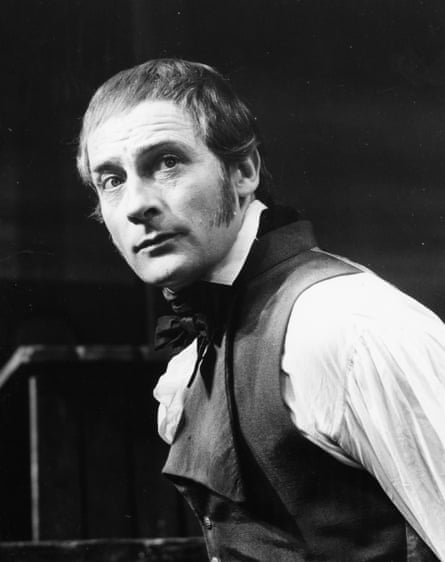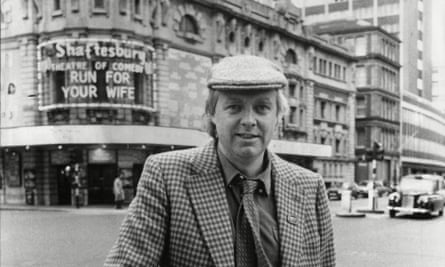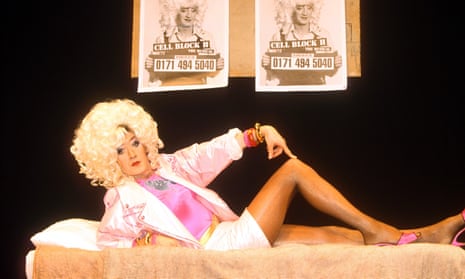‘One critic described it as ‘a real gold-plated stinker’,” says Tim Hutton. “Another called it ‘three hours of non-musical torture’.” It’s a bright August morning in Kent and the 32-year-old producer and record company boss is reading from the glossy eight-page booklet that accompanies one of his label’s singular releases. “The composer was very matter-of-fact about the reviews being diabolical,” Hutton says. “He said: ‘If you’re writing a musical, you either want five-star reviews or one-star reviews. No one remembers the average.”
This is the world of Stage Door Records, the boutique record label that Hutton has run, pretty much by himself, since 2008. Initially home to vocal collections by such past and present stars of musical theatre as Anthony Newley, Meredith Braun and Twiggy, since 2009 Stage Door has specialised in a very particular area: deluxe reissues of original cast recordings of flop West End musicals.
“I prefer the term ‘lost’,” Hutton says. “I’m a self-confessed musical theatre geek and I saw a gap in the market. Everyone focuses on successful British musicals – the Phantoms, Les Mis, Cats – but I’m shining a light on lesser-known works.”
But why? Hutton grew up in Qatar and spent his teenage years listening to Julie Andrews and Barbra Streisand records, and cast recordings that his father, a pilot, would bring back from the US and the UK. “Then you delve deeper,” he says. “You go a bit further off the map.”
A move to London in 2000 led to a fascination with Andrew Sabiston and Tim Williams’s short-lived West End musical Napoleon (“Historical tosh” – the Guardian). Hutton tracked down the 1994 Toronto cast recording, and played it non-stop. “It was just breathtaking,” he says. “I thought: I need to share this. After setting up Stage Door I contacted the writers and they let us reissue it. We had no track record. It was purely down to my enthusiasm.”
Hutton’s enthusiasm has now been responsible for releasing numerous lost musicals back into the wild; works of a rare and peculiar stripe, such as Sandy “The Boyfriend” Wilson’s 1971 adaptation of John Collier’s 1930s society satire His Monkey Wife, AKA Married to a Chimp, plus, a full decade before Spinal Tap’s Saucy Jack, Denis De Marne and Ron Pember’s 1974 musical Jack the Ripper, with the memorable tagline “Fun, terror, song and dance”. However, Hutton is keen to stress that he’s not out to poke fun at these spurned works. “A lot of these musicals gained a notoriety they didn’t deserve,” he says. “They’d be in lists of the worst musicals of all time but I’d listen and think: ‘This needs to be heard!’ Put your preconceived ideas aside.”

While no one can deny that a Jack the Ripper musical might possess a certain kitsch or morbid appeal, to hear Hutton talk about how he tracked down the then 80-year-old Pember, and the phone call he received from Pember’s wife saying: “We’ve waited 40 years for this” is to hear a man in love with his work.
One of Hutton’s proudest discoveries was the original 1969 London cast recording of Two Cities, a musical interpretation of Charles Dickens’s A Tale of Two Cities, which opened at the Palace Theatre in London on 27 February 1969, and closed 44 performances later. Written by Constance Cox and US theatre producer Jerry Wayne, it also featured music by his 23-year-old son, Jeff, who nine years later would launch the HG Wells-inspired rock opera War of the Worlds.
“You can sum that up in one word,” Jeff Wayne says. “Nepotism. We opened at the Palace with no out-of-town run. My dad took the risk and it didn’t pay off. We knew there were problems. On opening night, there were standing ovations. The next day, after the reviews, you could have swung a horse in there and not hit anyone.”
Two Cities gradually pulled in the crowds, with the show’s star, Edward Woodward, winning the 1969 Evening Standard and Variety Club awards for best male performance. But it was too late. The plug had already been pulled. “My most vivid recollection was that I’d let my dad down,” Wayne says. “I thought he should have gone with an established composer. He passed away in 1996. I don’t recall us ever listening to it again.”
Yet when Wayne revisited Two Cities for the Stage Door remaster he found it better than he expected. “I was initially hesitant,” he says. “But to see something we worked on all those years ago being out there again … I think my dad would be thrilled.” Now he thinks it seems “not bad at all”.

Alongside full cast recordings, this year Hutton established a reissue series entitled Lost West End, collating stand-out tracks from otherwise overlooked productions, such as Prisoner Cell Block H; I, Robert Purvis and Paul Prescott’s infamous 1983 “supper spectacular” which closed during dress rehearsals; and the 1983 musical Blondel, written by Tim Rice, someone not normally associated with West End failure.
“Without denying its right to be on an album called Lost West End, it wasn’t totally unsuccessful,” laughs Rice. “It ran nearly a year. We never got the story or set right, [but] Cameron Mackintosh was involved, money was no object, so we shoved it straight into the West End, which was a mistake. A lot of people thought it couldn’t fail because my name was attached.”
Rice, who hopes to reissue the entire Blondel score through Stage Door, is generally approving of the label’s mission, but with qualifications. “Most of the shows he has reissued, including Blondel, probably deserved not to be hits,” he says. “They may have wonderful songs, but the score is not always the key thing. It’s the story. If that doesn’t work, the musical gets forgotten. Also, sometimes the timing is just wrong for the subject-matter. Chicago, Blood Brothers: great shows but the timing wasn’t right first time round. We got it right with Evita, but if it had flopped they would have said: ‘Well, they were barmy. A musical about an Argentine dictator? Idiots!’”

Timing is a theme Hutton repeatedly returns to, perhaps understandably given that alongside Jack the Ripper and His Monkey Wife, Stage Door has also reissued “gold-plated stinker” Tess of the D’Urbervilles, and Out of the Blue, a 1994 musical about the dropping of the atom bomb on Nagasaki, which closed after just 20 performances. “Tess opened the same time as The Lion King and Mamma Mia,” Hutton says. “Two happy endings and here comes Tess. One-star reviews. Critics said it was bleak. C’mon! It’s Tess of the D’Urbervilles, not Hello, Dolly! But audiences wanted The Lion King. With Out of the Blue, yes, it was a musical about the atomic bomb and how could you trivialise these events? But it wasn’t trivialising events any less than Miss Saigon or Les Misérables. If it’s told sincerely, no subject is out of bounds. The Book of Mormon proves that.”
Viewed in the light of Trey Parker and Matt Stone’s fiercely funny religious satire, and the recent Broadway success of Lin-Manuel Miranda’s hip-hop musical about Alexander Hamilton, Stage Door’s reissues might be regarded as out-of-bounds and mistimed musicals that have come of age; except for one thing. Unlike a rediscovered novel or unearthed film, Stage Door’s cast recordings present only part of the story. Surely a true revival would involve a return to the stage. Well, even that is under way. Stage Door’s 2014 reissue of the 1982 cast recording of Trevor Peacock & Alan Price’s Andy Capp was followed by the musical’s first ever revival, last winter at the Finborough theatre. Jeff Wayne is currently in talks with West End producers interested in reviving Two Cities, while preparations for Stage Door’s latest release, Maddie (“Thoroughly monotonous Maddie” – the Independent) have led the show’s writers to prepare a new version for the West End.
For the moment, however, Hutton is most excited about his label’s forthcoming releases, including a third instalment of Lost West End, a musical based on the life of Sir Francis Drake starring Paul Jones of Manfred Mann, and a long-lost British musical from 1963 that ran to just 12 West End performances. “I can’t say too much,” he says, excitedly. “But I’ve been in touch with the composer’s son who found reel-to-reel tapes of the original score in his father’s archive. No one thought any tapes had survived. I’m really looking forward to hearing it.”
A quick spot of research unearths a contemporary review of the musical from Bernard Levin in the Daily Mail. It bears a one-word headline: “Ugh”.
- Maddie – 20th Anniversary Deluxe Edition, is released by Stage Door on 14 October.

Comments (…)
Sign in or create your Guardian account to join the discussion